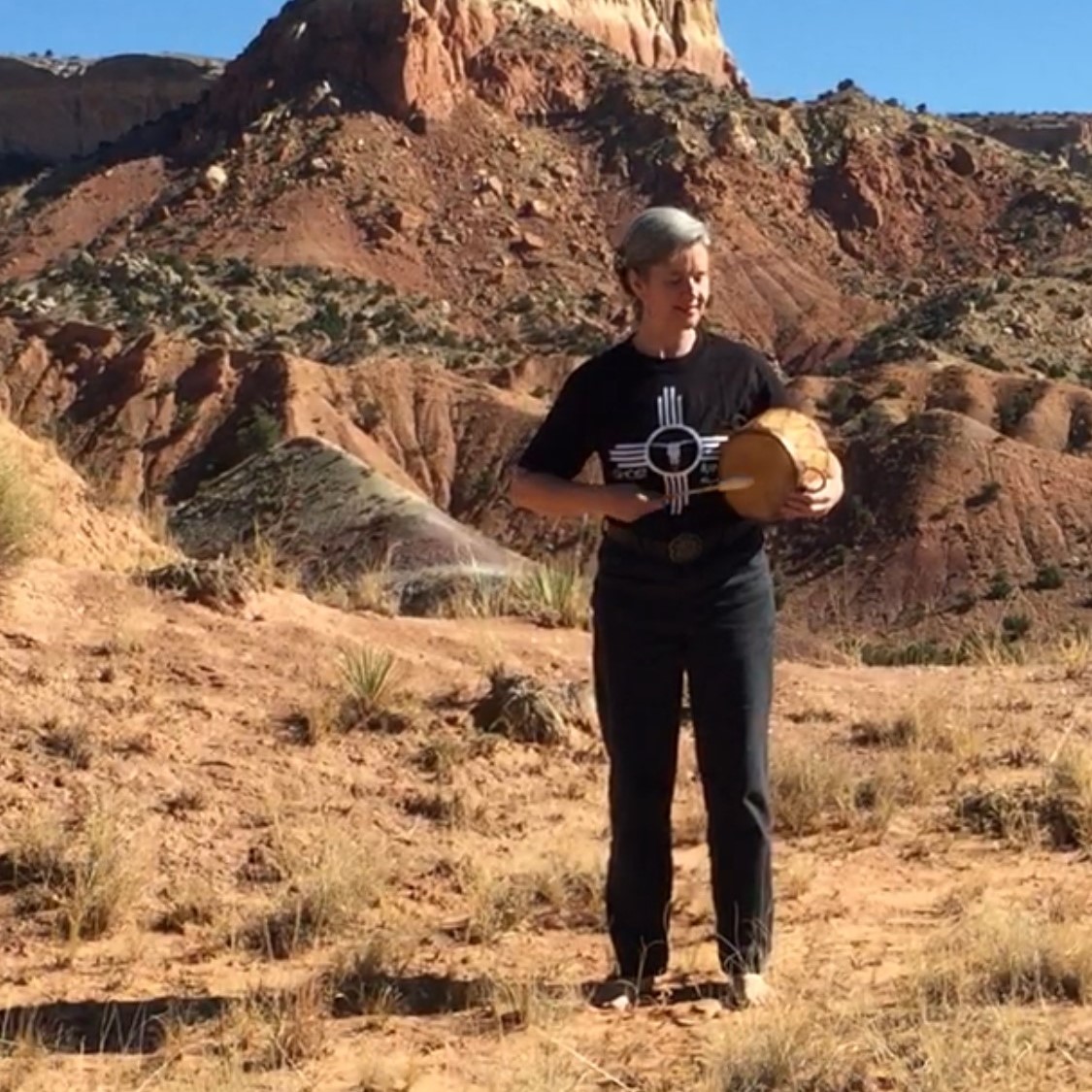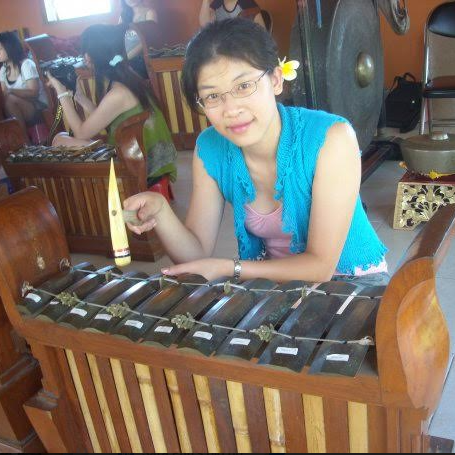Rhythmic Cognitive Restructuring: Therapeutic Interplay of Rhythm Cognition and Mindful Action
-
Cindi Glidden-Tracey, psychologist, Counseling Center, University of South Florida; with Sara Pun, registered clinical counsellor and certified music therapist
Coach House, Green College, UBC and livestreamed
Tuesday, April 11, 5-6:30pm with reception to followin the series
Green College Special Event -
Most cultures employ practices for helping and healing when people encounter difficulties in human living. Psychotherapy stems from European and North American theories and corresponding techniques for utilizing both language and non-verbal communication to promote increased well-being. Healing rituals and traditions in Indigenous or non-Western cultures may look different, yet many incorporate both words (in chants or songs) and actions (like gestures, drum beats or dance moves). This event will explore human efforts with therapeutic aims to shape mindful expression and rhythmic movement for the wellbeing of individuals and the benefit of communities, drawing from various cultural teachings. Cindi Glidden-Tracey will describe the concepts and methods of Rhythmic Cognitive Restructuring, with consideration of individual and group formats. Cindi will then lead a group demonstration of stress management techniques with audience participation, all reinforced with percussive activities. Techniques include mindful breathing, thought stopping with thought replacement, and entraining self-messages with matched cadence on a drum or using body percussion.
 Currently a licensed psychologist at the University of South Florida, Cindi Glidden-Tracey previously taught Counselling Psychology at the University of British Columbia, Arizona State University, Southern Illinois University, and Illinois State University. Cindi has also worked at university counseling centres at the State University of New York at Stony Brook and at Illinois State University, as well as in a community substance use treatment centre in Illinois and a group private practice in Arizona. Cindi explores personal and cultural dynamics shaping a client’s story, and –when a client is interested– movement, rhythm, writing, drawing, and psychodrama activities are incorporated into sessions as well as talk therapy methods. She is the Associate Editor of the international journal Addiction Theory and Research, and has published the book Counseling and Therapy with People Who Abuse Alcohol and Other Drugs. Fun Fact: Cindi has been a member of African drum ensembles in Arizona and British Columbia, and now loves participating in drum circles in Florida.
Currently a licensed psychologist at the University of South Florida, Cindi Glidden-Tracey previously taught Counselling Psychology at the University of British Columbia, Arizona State University, Southern Illinois University, and Illinois State University. Cindi has also worked at university counseling centres at the State University of New York at Stony Brook and at Illinois State University, as well as in a community substance use treatment centre in Illinois and a group private practice in Arizona. Cindi explores personal and cultural dynamics shaping a client’s story, and –when a client is interested– movement, rhythm, writing, drawing, and psychodrama activities are incorporated into sessions as well as talk therapy methods. She is the Associate Editor of the international journal Addiction Theory and Research, and has published the book Counseling and Therapy with People Who Abuse Alcohol and Other Drugs. Fun Fact: Cindi has been a member of African drum ensembles in Arizona and British Columbia, and now loves participating in drum circles in Florida. Sara Pun is an empathic and understanding registered clinical counsellor (RCC) and certified music therapist (MTA) with over 13 years of experience in the mental health field in Canada and abroad. Sara has two master’s degrees: in Counselling Psychology from UBC and in Music Therapy from Wilfrid Laurier University. Her education pairs two allied and complementary approaches, as music can be a powerful tool for expressing oneself and accessing emotions. Sara’s approach is client-centred, strengths-based, emotion-focused and culturally sensitive. Sara is a lifelong musician, growing up playing classical piano, guitar, clarinet, Balinese gamelan, Japanese Taiko drums and singing. Sara is fascinated by different world music traditions and has travelled to Nepal, Hong Kong and Bali to learn their music firsthand in the community. Sara believes the expressive arts are for everyone, regardless of formal musical training. Music therapy can involve listening and playing music, composing a song, drawing and guided imagery. Sara contributes as the associate editor for the Canadian Journal of Music Therapy. Sara is particularly interested in culturally diverse approaches for maintaining mental health and interdisciplinary practices. Sara also enjoys travelling, hiking, writing and yoga.
Sara Pun is an empathic and understanding registered clinical counsellor (RCC) and certified music therapist (MTA) with over 13 years of experience in the mental health field in Canada and abroad. Sara has two master’s degrees: in Counselling Psychology from UBC and in Music Therapy from Wilfrid Laurier University. Her education pairs two allied and complementary approaches, as music can be a powerful tool for expressing oneself and accessing emotions. Sara’s approach is client-centred, strengths-based, emotion-focused and culturally sensitive. Sara is a lifelong musician, growing up playing classical piano, guitar, clarinet, Balinese gamelan, Japanese Taiko drums and singing. Sara is fascinated by different world music traditions and has travelled to Nepal, Hong Kong and Bali to learn their music firsthand in the community. Sara believes the expressive arts are for everyone, regardless of formal musical training. Music therapy can involve listening and playing music, composing a song, drawing and guided imagery. Sara contributes as the associate editor for the Canadian Journal of Music Therapy. Sara is particularly interested in culturally diverse approaches for maintaining mental health and interdisciplinary practices. Sara also enjoys travelling, hiking, writing and yoga.
-
Unless otherwise noted, all of our lectures are free to attend and do not require registration.
Custom Lecture Fields
|